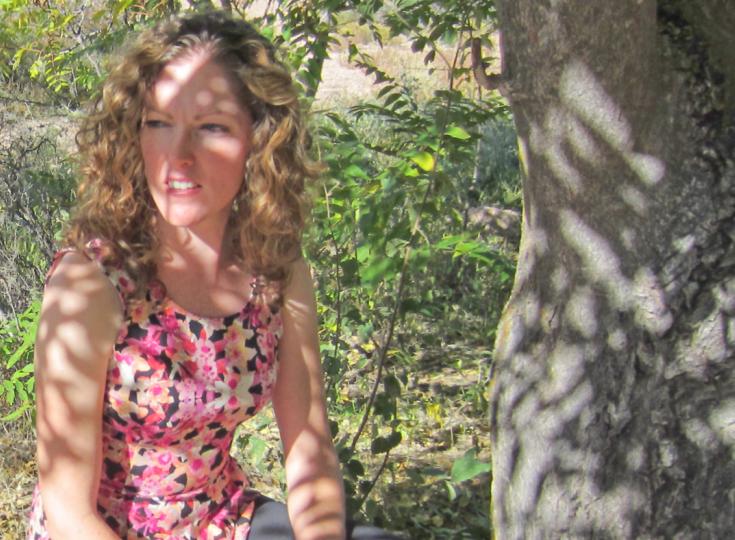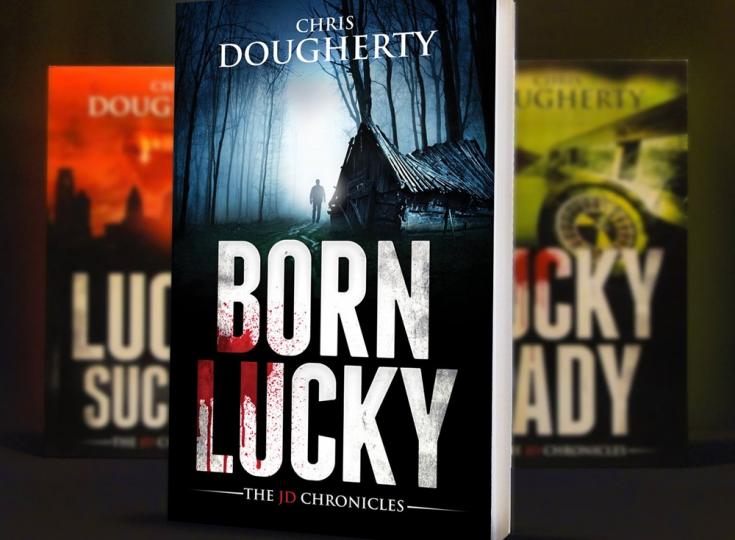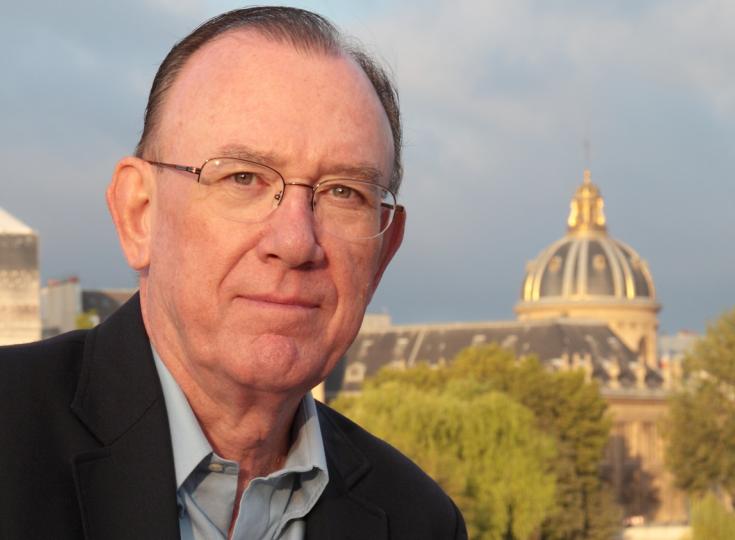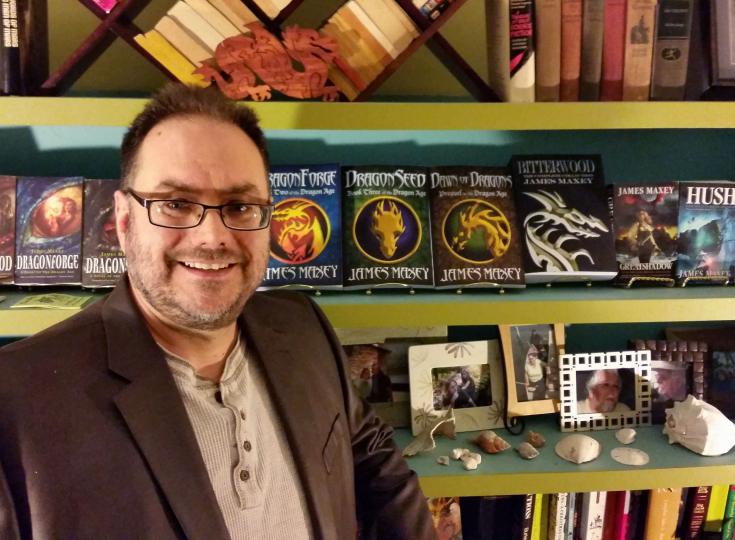CHADWICK WALL - Facing Off Against a Cartel
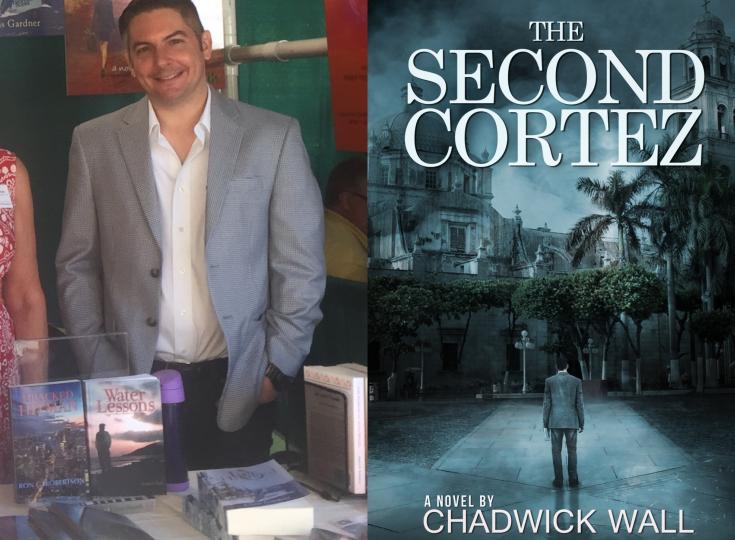
Chadwick Wall has written for the New Orleans Times-Picayune, the Sewanee Purple, the Riverside Reader, the Baton Rouge Advocate, and most recently Austin.com. After years living in many cities and regions, he counts himself lucky enough to reside in the laid-back yet vibrant, friendly and creative city of Austin. Here he spends many of his days and nights either holed up like a hermit, reading or writing away-or prowling around, investigating all of the live music, delicious cuisine, and cultural hotspots he can find. As our Author of the Day, Chad tells us all about his latest book, The Second Cortez.
Please give us a short introduction to what The Second Cortez is about.
In the seaside colonial city of Veracruz, Mexico, Nicolás Nolano is a thirty-two-year-old esteemed literature professor who lives a life of ease and pleasure—and he strives to keep it that way. He repeatedly resists his family’s overtures to join in their activism against a small, local but growing drug cartel called Segundo Cortez.
From the coastal boardwalk and cobblestone plazas of Veracruz, to the Arizona desert and streets of Santa Fe, to the northern Rockies and lakeshore towns of Montana, Nicolás endures a journey he would have never imagined.
Horrible acts by the cartel soon jar his entire psyche and he must reevaluate his neutrality. As Segundo Cortez grows by the day—murdering with reckless abandon—Nicolás is met with a monumental dilemma. Will he choose between suicidal vengeance and fighting for his beloved hometown, or pursuing a life among close friends and his newfound true love?
One thing is certain: Nicolás is set to encounter the greatest surprises of his life.
Your book starts off in Veracruz but also moves to the Arizona Desert and streets of Santa Fe - why did you take this approach?
I’d like to tell you why I chose these settings, but it would definitely be a spoiler! Just know that each of those settings is important to the novel. Readers will get this, and I hope they enjoy how I explore each of those beautiful, fascinating places in detail.
Nicolas needs to choose between vengeance and fighting for his beloved hometown and pursuing a life with his newfound true love. Why did you take this approach?
It definitely presents quite a dilemma. I imagined it as two diverging roads, very difficult to choose from. The choice involves love—love for one’s city, culture and family, versus romantic love.
What’s the biggest highlight of your career?
I’d say the biggest highlight of my writing career—thus far—is actually underway right now. I recently published my second novel. It got some great reviews by Kirkus Reviews and by Readers’ Favorite and by Red City Review. Those last two each gave The Second Cortez five stars. And to cap it off, The Second Cortez just became a finalist in the 2018 Red City Review Book Awards for general fiction. Winners are announced in a few weeks.
Was there anything in particular, an incident or something you read, that made you want to tackle this?
I’ve lived for over eight years in the Southwest. One day many years ago, while driving through New Mexico and west Texas, I conceived this idea of a desperate man crossing the desert on foot. And he’s a professor.
Besides writing, what other secret skills do you have?
I’ve been in either outside sales or inside sales for sixteen years, and sales has become my stock-in-trade, in terms of my place in the working world. I’ve been in tech sales for many of those years. I do enjoy it.
Is there an underlying message you wish to relay about basic human nature through your characters?
There is indeed---there are many messages. But I shy away from revealing them in an interview or in person. I want my readers to find these by themselves in my fiction.
When working on a novel, how do you immerse yourself in the main characters' lives? Do you observe people in a certain culture, or do you try to walk in their shoes?
Gathering research is one of the most exciting stages of my work on a novel. Travel, following in the footsteps of my characters, extensive videos, photos, notes, interviews. It’s quite intense, time-consuming, expensive, but so exciting and rewarding. The stories are many.
I do aim to immerse myself in the main characters’ lives by observing and interacting with people like them, and for certain characters, I’ll walk in their shoes to a great extent. In a sense, it’s the novelist’s version of the kind of preparations and study we see with character actors.
When working on a new book, what’s the first thing you do?
I journal and brainstorm about the story, its main characters, the setting and theme, the central problem of the novel, etc. Before I start outlining.
What genre of books do you like to read? Do you limit yourself to only the genre that you write yourself?
I lean heavily toward literary fiction, admittedly the genre in which I write. I’ll read works of fiction in other genres as well. Also, I read nonfiction works on a variety of subjects: biographies, memoirs, studies of history, literary criticism.
In your mind, what happens to the characters after you write their final chapters? Do they continue to "live on" in your imagination?
After the final chapter ends, or even after a character perishes in my fiction, that character lives on in my imagination. What would Walter Henretty do in this situation? How would he react? I can imagine Jim Scoresby in this place—he’d be sitting over there and talking with that person. And what that man just did—that sounds like something Nicolás Nolano would do. Or I’ll imagine where this character or that character ended up, two years after the last chapter of the novel. My hope is that my readers will do some of this. My sense is that it already happens. Several readers for example told me that they didn’t want my novel to end. It seems like those readers will remember my major characters, that they will live on in their memories and imagination.
Do you have any interesting writing habits, what's your average writing day like?
My average writing day involves waking very early in the morning in the silence of my house, enclosed in my study, and involves a lot of coffee. I’m at it as long as I can. Later in the day is reserved for less intellectually demanding tasks like journaling, outlining, reading.
I keep a small Moleskine journal in my pocket, and jot down thoughts and observations throughout the day, but especially at night. The journal stays on my bedside table for those moments when I conceive good ideas halfway between sleep and waking. Virtually all of what I inscribe pertains to the main writing project in my life at the time. What might be unusual is that I’ve written pages of notes, even in the thick of a busy restaurant. Much of what is transpiring around me has found its way onto the pages. Lately, those very creative, small-plate, locavore spots here in Austin have particularly been good for inspiration! Coffeehouses, bars, parks and gardens have also proven to be good locales for my journaling throughout the years.
What are you working on right now?
I've been writing my third novel (still untitled), and researching and journaling a lot for it as well. This novel has an extraordinary setting and an intriguing protagonist with a unique mission and struggle. The main character of my first novel, Water Lessons, is a major character (but not a protagonist) of the upcoming third novel. This novel-in-progress is very different from both the first novel and the second.
Where can our readers discover more of your work or interact with you?
I really enjoy interacting with my readers. Feel free to contact me at the following:
Website: https://www.chadwickwall.com/
Facebook: https://www.facebook.com/Chadwick-Wall-421177831334341/
Twitter: https://twitter.com/Chadwick_Wall
E-mail: [email protected]
